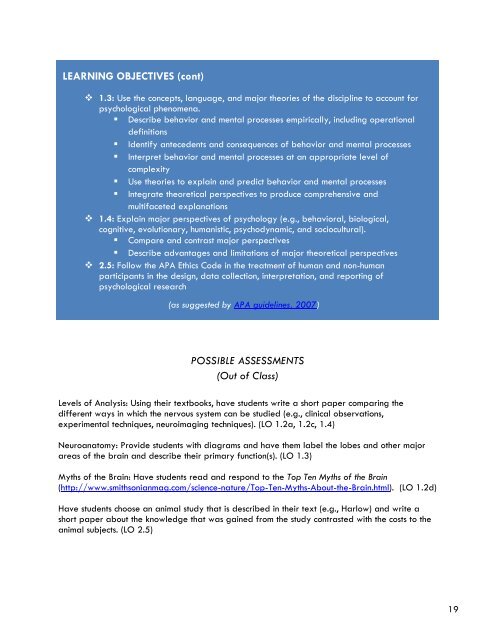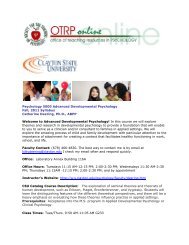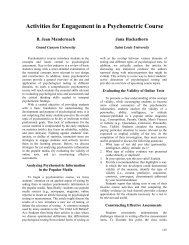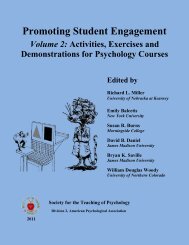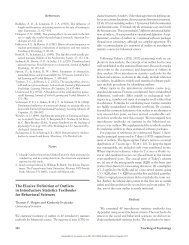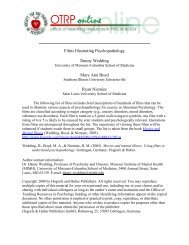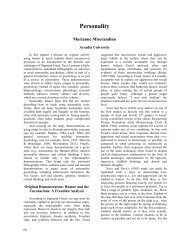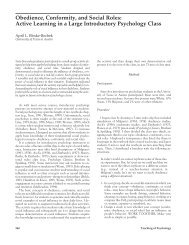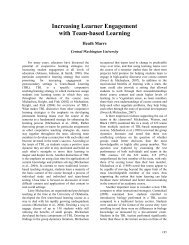INTRODUCTORY PSYCHOLOGY TEACHING PRIMER Early Career ...
INTRODUCTORY PSYCHOLOGY TEACHING PRIMER Early Career ...
INTRODUCTORY PSYCHOLOGY TEACHING PRIMER Early Career ...
Create successful ePaper yourself
Turn your PDF publications into a flip-book with our unique Google optimized e-Paper software.
LEARNING OBJECTIVES (cont)<br />
1.3: Use the concepts, language, and major theories of the discipline to account for<br />
psychological phenomena.<br />
Describe behavior and mental processes empirically, including operational<br />
definitions<br />
Identify antecedents and consequences of behavior and mental processes<br />
Interpret behavior and mental processes at an appropriate level of<br />
complexity<br />
Use theories to explain and predict behavior and mental processes<br />
Integrate theoretical perspectives to produce comprehensive and<br />
multifaceted explanations<br />
1.4: Explain major perspectives of psychology (e.g., behavioral, biological,<br />
cognitive, evolutionary, humanistic, psychodynamic, and sociocultural).<br />
Compare and contrast major perspectives<br />
Describe advantages and limitations of major theoretical perspectives<br />
2.5: Follow the APA Ethics Code in the treatment of human and non-human<br />
participants in the design, data collection, interpretation, and reporting of<br />
psychological research<br />
(as suggested by APA guidelines, 2007)<br />
POSSIBLE ASSESSMENTS<br />
(Out of Class)<br />
Levels of Analysis: Using their textbooks, have students write a short paper comparing the<br />
different ways in which the nervous system can be studied (e.g., clinical observations,<br />
experimental techniques, neuroimaging techniques). (LO 1.2a, 1.2c, 1.4)<br />
Neuroanatomy: Provide students with diagrams and have them label the lobes and other major<br />
areas of the brain and describe their primary function(s). (LO 1.3)<br />
Myths of the Brain: Have students read and respond to the Top Ten Myths of the Brain<br />
(http://www.smithsonianmag.com/science-nature/Top-Ten-Myths-About-the-Brain.html). (LO 1.2d)<br />
Have students choose an animal study that is described in their text (e.g., Harlow) and write a<br />
short paper about the knowledge that was gained from the study contrasted with the costs to the<br />
animal subjects. (LO 2.5)<br />
19


